#special needs children
Text
A little about me:
I am a mother of two beautiful children. One of which is special needs, and on 3/28, they lost 75% of their vision. I have had to take time off work to accommodate many MANY doctor appointments.
I started a Ko-fi if you feel the heart to donate to help with the costs of appointments, medication, and house modifications, which insurance doesn't cover.
If you are unable to then your thoughts and prayers are more than enough.
#ldysmtrst fic#donations#donate if you can#special needs#special needs children#blindness#insurance sucks#ko fi
9 notes
·
View notes
Text
#special child#special school#special education#special needs children#special needs classroom#disabled children#teaching children with special needs#kids with additional needs#special
3 notes
·
View notes
Text

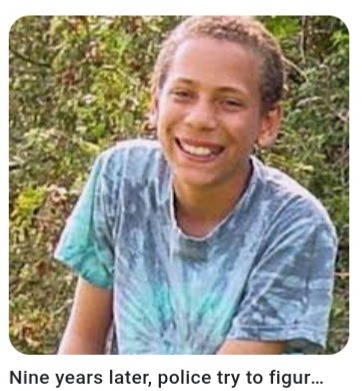
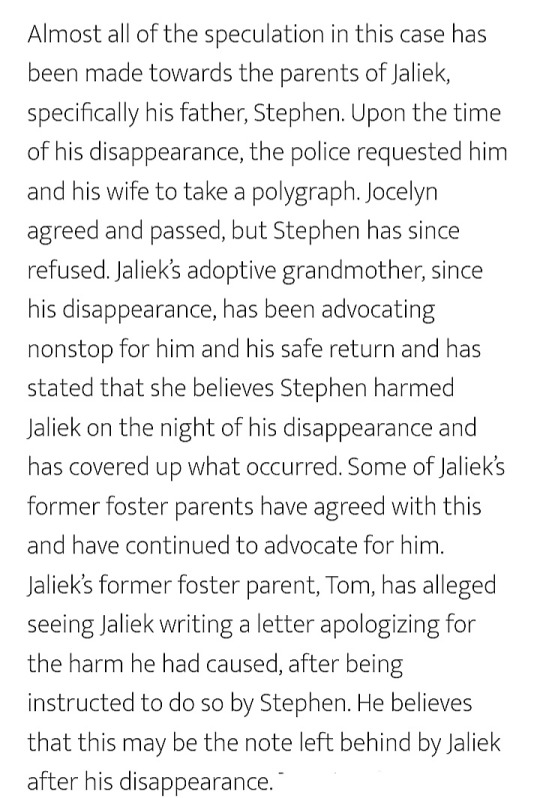
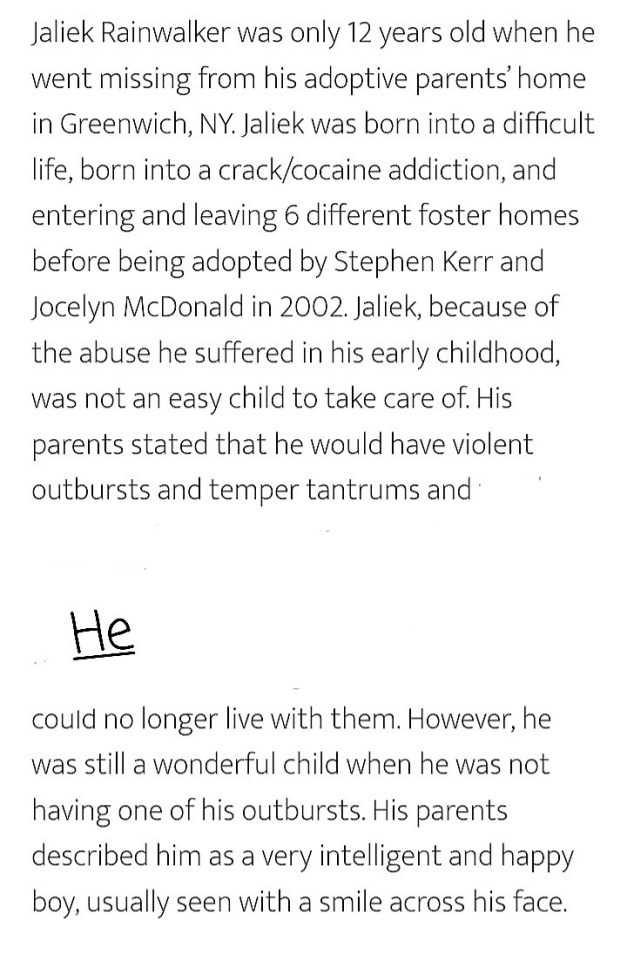

Stephen Kerr used to work at Phantom Labs in Greenwich, NY.
Kerr and his wife have since moved to Vermont (a recent sighting of Kerr was reported in Salem, NY)
At the time of the disappearance, due to Jaliek being African-American (biracial), Kerr suggested to police that Jaliek had run away to join a gang. People who knew Jaliek have dismissed that theory though.
#jaliek rainwalker#stephen kerr#missing child#missing#unsolved crime#true crime#new york#greenwich#2007#special needs children#special needs#disability#foster care#cold case#justice for jaliek#stephen burrell kerr#jocelyn mcdonald#vermont#unsolved
16 notes
·
View notes
Text
I finished reading "Beyond Intelligence" by Dona Matthews and Joanne Foster over the weekend. It was easier to read in the ward for some reason. I've taken the liberty to type up page 120 for everyone. It's a list of what matters most in a child's educational experience.
AUTHENTICITY: help your child find his own interests, values and ways of being.
ACTIVITIES: provide a wide range of activities for your child and do some of them together.
AUGMENTATION: encourage your child to build on his strengths.
AUTONOMY: respect and foster your child's independence.
ACHIEVEMENT: celebrate your child's achievements, and help him learn from his failures.
AFFIRMATION: affirm your child's essential humanity, as well as his unique abilities.
ACCOUNTABILITY: as your child grows older, let him be increasingly responsible for his decisions.
ATTITUDE: model a growth mindset, and reinforce one in your child.
ASSUMPTIONS: identify and challenge your inferences and assumptions about intelligence and learning.
ADVOCACY: work with other parents, teachers, administrators, and legislators toward getting important educational concerns addressed.
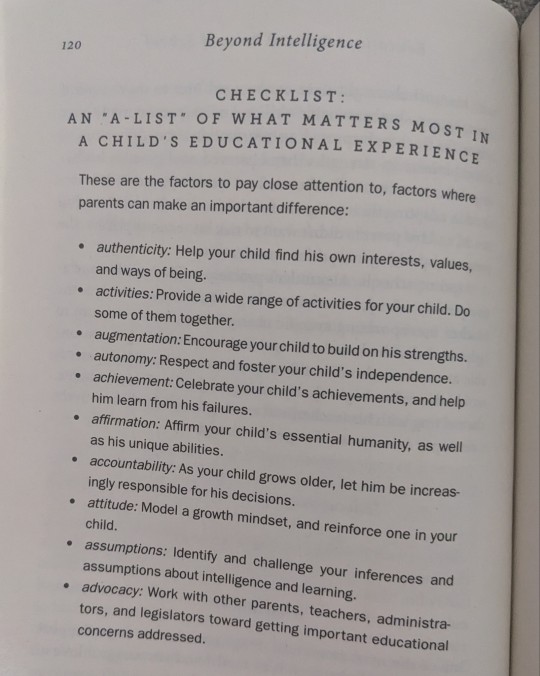
#journal#personal#pic#child rearing#raising children#child advocacy#education#booklover#bibliophile#bibliophilia#intelligence#children#helping kids#special needs#special needs children#gifted education
0 notes
Text
What My Special Needs Brother Has Taught Me
I am making peace with the reality of taking care of my special needs brother as we get older in years. For context, I am turning thirty this year, 2024.
I am already imagining us in the future; all grey hairs and wrinkled skin. Our joints aching, and he, whining and complaining.
I will still be preparing his meals because my brother is afraid of hot oil and the heat coming from the stove.
I will spend most of my money on his medicines unless a good government program finally helps to assist autistic elders in the Philippines.
I will still work a decent-paying job to provide for his basic needs and if I have some extra, maybe I could put in a good insurance company and HMO.
My best hope is for him to become independent and find good work on his own, of course. But if he doesn’t, then I have to make sure we both don’t suffer.
Personal Struggles with Accepting Responsibility
If you were to ask someone stronger, more mature, and more resilient than me about the challenges of caring for someone in the family who has special needs, they would probably say that it is a blessing and their personal calling.
They probably would accept the responsibility with pride. If ever they doubted, or feared, or felt moments of weakness, I’d like to think they would carry on sacrificing a major chunk of their lives for the benefit of the whole family.
If you would have asked me the same question some months ago, I would have glumly replied that I have no choice.
For the longest time, I was a weak, self-centered person. I put myself first above others and fled at the first sensations of a binding responsibility, especially if I felt that it was a heavy burden to carry on my own.
For a long while, too, I resented my special needs brother and my parents.
I didn’t ask to be their eldest child who was supposed to support a special needs sibling for the rest of my life. To be fair, they weren’t forcing me, but the passive aggressiveness and guilt-tripping tactic was just as effective.
I thought that my brother would keep me from living my best life, that he would hold me back from so many opportunities and wonderful adventures. Providing for his needs meant sacrificing a lot of my free time and freedom.
Now, though, I have begun to settle into the role of helper or caretaker around the house.
Perhaps it was time. Perhaps it was age or biology or a combination of all three.
It has been difficult. It still is. True enough, it meant a lot of sacrifices; personal time, days off, simple pleasures, creative hobbies, and other projects. But there will be no one to bear this burden but the family members who will remain.
I’m finding the peace in accepting that. But it doesn’t erase the fears I still hold to this day.
My Fears of Taking Care of a Special Needs Sibling
Expenses
Raising special needs children, children with disabilities, children on the autism spectrum, neurodiverse kids, or whatever term one chooses to describe their current situation is more expensive than neurotypical, “normal” children. Some, if not most, need constant supervision for the rest of their lives.
They need different therapies to improve speech, movement, and other behaviors to be functional in a public setting.
Then you need teachers with specialized training to educate them in the hopes that they would use those skills to achieve full or partial independence.
Though my brother went to a specialized school with competent, kind, compassionate teachers, all the expenses came from my father’s pocket, without help from the government. At least, to the best of my knowledge. He worked hard so my brother got the proper education he needed.
Living in the Philippines is hard enough for lower-middle-class families like ours. I can barely scrape by with the meager salary that I had during my last job before I tried freelancing. I don’t feel confident that I’ll have the kind of money that my father had in his youth, so I’m scared that I might not provide for my brother’s future needs.
And those needs will grow more expensive as we both age. That is why I fear our future expenses.
Lack of Government Support
I’m not the type to blame the government for everything, but reading a recent article still showed the lack of progress or any concrete plan for assisting Persons with Disabilities (PWDs) in the country.
The news article stated that there aren’t enough “full-fledged learning centers for learners with disabilities in every locality due to the shortage of health professionals who can assess children with special needs”.
After reading that, I worried that there was still a lack of government support for adults with autism who are capable of working a simple job.
My brother isn’t on the severe side of the autism spectrum, you see. He can talk, and dance, and understand you, just as long as you talk simply. He could still write his name, albeit squiggly. He can understand movies and children’s books. He can understand simple orders.
I am grateful that at least he doesn’t need round-the-clock attention. But I’m afraid that if he doesn’t use the skills he learned in school, he will end up losing confidence in himself, and forget the skills he acquired in the expensive school.
While I’ve read that the popular shopping malls in the country have been hiring people on the autism spectrum since 2016, I have yet to personally encounter actual adults with autism working in the many malls that I visited. I’m not sure the information holds up now.
I don’t know if the Philippines would ever have a professional kind of assisted living program for the mentally challenged or disabled. But it would be a great burden off the parent or guardian’s shoulders if there were indeed competent caretakers to watch over the special needs individual as they make ends meet.
Then again, these facilities cost quite a lot of money. It would be up to the government, along with the rest of society, to share this burden to improve the quality of lives of all. I’m willing to do my part as well.
The only benefit from the government that helped somewhat was the discounts on bills and groceries when I presented my brother’s PWD ID at the cashier.
I shiver to think what would happen if there was no government aid at all. I don’t want to be one of those elderly people I see on the news. The ones who are in their 80s and 90s still taking care of an autistic aging adult.
My Own Physical Health Limitations
My brother is physically stronger than me. Ever since I was a small child, I was a weakling. I remember the years when every morning, my breakfast was thirty minutes of nebulizer and my dinner was a nightly dose of preventive inhalers.
I’m grateful that I’ve grown out of those severe asthma attacks, but no one can say for certain if it will come back with a vengeance. I hope not, for my family’s sake.
Still, I’m afraid that my health could not keep up with the demands of a full-time job, and some side hustles to help with the finances, while also taking care of myself, having a social life, and taking care of my brother.
It feels like I already have a child with no partner to help me.
All this pressure is taking a toll on my mental capabilities as well. If I don’t stop overthinking, then it will only cause further strain and negatively impact my health.
I need to train my mind to become resilient.
Ironically, that is what my brother is teaching me the more I reflect on how to better care for him and address his needs.
What My Special Needs Brother is Teaching Me
Accept Responsibility and Face Reality
I have learned that accepting responsibility and forcing myself to not overthink about the future and every little detail that irritates me takes a load off the mental and physical stress.
Would it be nice for government assistance? Yes. Would it be nice if my parents set up funds for his future? Definitely.
But that isn’t my reality. All I can do is focus on what I can do at the moment. It may not be enough but at least it’s a plan. Plans still count as something.
I also realized that things will get worse if I choose to run away from my problems. For years, I hoped that it would resolve on its own as I faced my own challenges. I hoped that a solution will fall from the sky and save us all. I hoped that my parents would think of something grand.
Again, the reality of our situation is that it won’t get any better if I don’t contribute.
The reality is that my parents are getting more lines on their faces with each season. Grey hairs are growing faster than they can color them. Their skin is sagging.
I feel myself getting older too. I am on the last stretch of my 20s. I better contribute to the family while I still have remaining strength.
That is why when well-meaning people insist that it really isn’t my responsibility to care for my special needs brother, I tell them that I am not comfortable abandoning them altogether. I need to be present to tackle all the problems on hand so that my aging parents would not suffer.
It may not be my fault that I am physically weaker than average and that my brother has special needs, but it is still my responsibility to act.
That’s just acting like a decent human being and as a good brother.
Besides, we’re Filipinos. It’s ingrained in our culture and tradition to stick together. Unless the family is downright toxic, then by all means, cut them off.
Furthermore, I did my years of selfishness. I partied. I played games to my heart’s content. None of it was fulfilling. All of it was wasted hours and days on cheap dopamine.
I had fun at the moment, but the pain multiplied depending on the time I had delayed addressing important obligations.
In my defense, it wasn’t like I was delaying gratification. I treated these simple pleasures as rewards for being an adult. Still, I admit that there was selfishness there.
Lastly, I have no interest at all in starting my own family. I’m happy being single for the rest of my life. I am an antinatalist, after all. Maybe this is the universe’s way of balancing things out.
Build Strength and Resilience
I used to have this victim mindset all the time. But taking care of my brother grants me a new perspective in life.
It forces me to look for solutions, instead of dwelling on problems. It forces me to become positive and helps me access this delusional confidence to survive and to keep showing up for work.
I realized I am more motivated to finish things and stick with my chosen struggles if it means supporting someone else. It makes things worth doing. It gives me strength and purpose.
I’m aware that helping others boost overall mood, but I’m not doing it for that. I’m not helping because I want that surge of positivity.
I’m helping out of love and out of reciprocation for the sacrifices my parents had made.
I'm helping because I have a lot of years to make up for.
Live with Hope
My special needs brother makes me see what matters most in life.
It’s about bringing people together and trying your best to protect them. It’s about sharing the load with others. It’s about giving more than you take.
It’s about living life one day at a time; to be comfortable with the lows and to enjoy the highs. It’s about never giving up and always believing in the power of hope, that whatever happens, we’ll get through this together.
It’s about honoring the sacrifices of my father and mother, cultivating a strong support system, and being a support system in return.
It may not completely erase all my fears, but living with hope manages them enough so that I have the determination to pick myself up every day and continue focusing on the present. And hope that all my efforts will count for great things in the future.
There are no guarantees, I know. But it won’t stop me from working.
Having said that, I’m not going to overwork myself. That in itself is a bad strategy. Balance would be the key here.
Work the hours, clock out, live well below our means, cook healthy meals, and ask for help when needed.
Be Sympathetic
Sympathetic. Empathetic. Compassionate. Kind. Patient.
Helping care for my special needs brother has let me release some of the negativity in me.
With a background in dramatic storytelling and a short stint as a PR writer, one of my major roles was reading and researching all the negativity in the news to hook people’s attention.
Maybe I had absorbed too much negativity that I viewed my life bleakly.
I had become jaded and toxic to the point that I had to be less sensitive to the plight of others to protect whatever pool of emotions I had left, which, ironically, made me seem dull, insensitive, and an emotionless husk.
I viewed my life with crushed hopes and broken dreams.
Now, I am re-learning how to search for the silver lining in each situation. I am re-learning to be more understanding towards hostility. I will still fight back even if it means defending myself and my time, but I am more reflective of such negative encounters.
I understand that we’re all lost, alone, and confused. I understand that we either lash out or keep our emotions bottled up.
Helping take care of my brother, I sometimes see that I’ve wasted so much of my energy on negativity and toxic behaviors. I am learning how to let go.
I would also add that I have a rocky, tumultuous relationship with my father. But the care he provided for my brother humanizes him. I still hate the guy, but I respect his sacrifices.
Conclusion
I still have a lot to learn. Every day is filled with frustrations. But without my brother, I am still stuck being a self-centered, hedonistic individual, afraid to face the reality of the past before it haunts him in his future.
Because of him, I am willing to do my best each day, good or bad, and to have faith that I can overcome obstacles.
Words: Ejay Diwas
Art: Viviai Art

#autism#autism spectrum#special needs#neurodivergent#fears#brother#care#government assistance#philippine government#philippines#filipino#autism awareness#special needs children#autistic adults#love#hope#family
1 note
·
View note
Text
Nurturing a child with autism involves distinct challenges that call for understanding, patience, and customized approaches. While successfully navigating these challenges requires an ongoing effort, with the proper guidance, anything becomes achievable. Allow us here at Able Autism Therapy Services, people’s leading choice for ABA therapy services in Johns Creek, Georgia, to help you!
0 notes
Text
When Is Pediatric Home Care Needed?

When it comes to taking care of our little ones, their health and well-being are always the top priorities. However, there are times when children require specialized care right where they’re most comfortable: at home. That’s where our essential home healthcare services in New Jersey step in.
Learn More: https://www.spendylovehomecare.com/when-is-pediatric-home-care-needed
0 notes
Text
Pediatric Dentistry for Children with Autism Spectrum Disorders
Pediatric dentistry plays a crucial role in ensuring the oral health of children, including those with Autism Spectrum Disorders (ASD). Autism presents unique challenges when it comes to dental care, but with patience, understanding, and specialized techniques, pediatric dentists can make a significant difference in the oral health and overall well-being of these children.
Understanding Autism Spectrum Disorders
ASD encompasses a range of developmental disorders that affect communication, social interaction, and behavior. Children with ASD often exhibit sensory sensitivities, anxiety, and difficulty with transitions, which can make dental visits especially challenging.
Tailored Approaches to Dental Care
Pediatric dentists should be prepared to adapt their approach to meet the specific needs of children with ASD. Here are some essential considerations:
1. Sensory Sensitivities: Many children with ASD have heightened sensitivities to touch, taste, and sound. Dentists can create a sensory-friendly environment by dimming lights, using noise-canceling headphones, and providing weighted blankets to help children feel more comfortable.
2. Visual Supports: Visual aids, such as social stories and visual schedules, can help children with ASD understand the dental visit process and reduce anxiety.
3. Desensitization: Gradual exposure to dental equipment can help desensitize children to the sensations associated with dental care, making future visits less intimidating.
4. Communication: Dentists should communicate clearly and concisely, using simple language and visual cues when necessary. It's important to be patient and allow the child time to process information.
5. Behavior Management Techniques: Pediatric dentists trained in behavior management can employ techniques like positive reinforcement, token systems, and distraction techniques to create a positive dental experience.
Parental Involvement
Collaboration with parents or caregivers is essential. Dentists should work closely with families to understand the child's specific needs and preferences. Parents can provide valuable insights into their child's triggers and coping mechanisms.
Consult with a special needs dentist in Missouri City to meet the unique needs of each child, dentists can promote good oral health and reduce anxiety associated with dental visits. Effective communication, sensory accommodations, and parental involvement are key elements in ensuring a positive dental experience for these children, setting the foundation for a lifetime of oral health.
0 notes
Text
#special#special needs children#intellectual disability#autism#developmental disability#parenting tips#parenting guide#disability#disabled children#child with special needs
2 notes
·
View notes
Text
Good People Doing Good Things -- Two Of 'Em!
Just two ‘good people’ stories today, folks … I have more, but I’m simply too tired to work much longer tonight.
A caring barber
Vernon Jackson is a barber in Cincinnati, Ohio. Vernon works six days a week for profit, but on his ‘day off’, he still works cutting hair … for children with special needs … for free. It’s something he’s done since 2021.
“I was hearing so many horror stories that…

View On WordPress
#Gifted Program#Isaiah Márquez-Greene#Jacob Trouba#New York Rangers#Sandy Hook school shooting#special needs children#Vernon Jackson
0 notes
Text
When Challenged Children Grow Up
When Challenged Children Grow Up
A couple of weeks ago I went to the school where my daughter works with children who are on the spectrum. She has been working with these children for several years, and, as a licensed music therapist, she is remarkably effective at helping children reach their inner selves through and using music.
The school puts on programs twice a year; one during the winter holidays…
View On WordPress
0 notes
Text

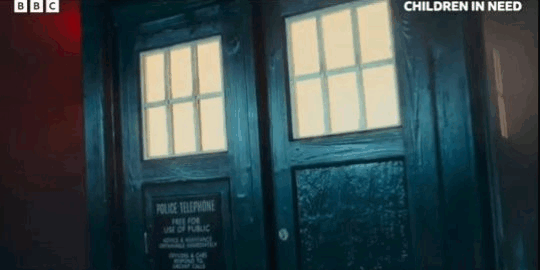
2005 vs 2023
#doctorwho#doctor who#doctor who 60th anniversary#60th anniversary specials#tenth doctor#fourteenth doctor#doctor who children in need
2K notes
·
View notes
Text
Understanding the Multiple disabilities
Understanding the Multiple disabilities
When a child is reported with few different types of disabilities then the term multiple disabilities is used. For example, a child may have difficulties in understanding, learning, along with controlling their movements, with a loss in hearing and vision along with speech and language impairment.
The effect of multiple disabilities can be more than the combination of two individual…
View On WordPress
#acceptance#autism and visual Impairment#autism spectrum disorder#autism talks#blind and asd#children with multiple disabilities#deaf-blindness#deafness and visual Impairment#multiple disabilities#special needs children
1 note
·
View note